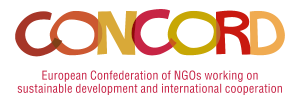
By Tanya Cox
Director at CONCORD
The thoughts and views contained in this blog do not represent a CONCORD position.
The one-year anniversary of Russia’s invasion of Ukraine was marked by numerous articles in all sorts of scholarly (and less so) journals, and pretty much the same question was on everyone’s lips: what will it take to stop the war? Are we in for a very protracted crisis on European soil? Will the war last for as long as President Putin is in power in Russia? What will come after the war?
The “détente” that we have been enjoying for the last 30 years could be over for good and a new normal might be established, although it is too soon to see clearly what shape that could take. The EU appears to be conscious of this, not least because much of its energy and its focus is on the geopolitics of the war in Ukraine, as well as its impacts. Unsurprisingly, the State of the Union, organised by the European University Institute in Florence, is this year dedicated to ‘Building Europe in times of uncertainty’.
One year after the war began, and the discourse has moved on from discussions as to whether the West provoked Russia into attacking Ukraine, and whether piling on the sanctions could simply convince Putin that he was right all along or whether, on the contrary, they will bring Russia to its senses, aka to its knees. Now, analysts and diplomats are concerned about avoiding any further escalation (could China join forces with Russia? Might Russia use nuclear force?) and are considering how to get out of a potential stalemate. Given that this is unlikely to be a war which can be won, the main issue is to stop the loss of life, the maiming of civilians and the violations which are no doubt being committed. How to end the war, without letting Putin off the hook – which would only serve to show that there is no price to pay for aggression – but without humiliating Russia either? And without making this all about which ideology ‘won’.
However, this is about ideology (simply put: democracy and freedom versus autocracy and repression). But it’s also, critically, about human rights and the role of the state. In the Global North (or the West), governments by-and-large believe in upholding people’s human rights, in accordance with the UN Charter – which prohibits the use of force in international relations – and the UN Conventions. What is becoming very clear, however – and creating great uncertainty for the EU and its allies, particularly the USA – is that Russia and China want to be “free” to pursue their future path as they see fit, without the constraints that were put in place in the post-WW II era, under the auspices of the United Nations. One could no doubt argue that quite a number of other countries might also fall into this category. This necessarily means that there will be tensions in the world until a new world order is agreed – whether implicitly or explicitly. Which set of values will hold sway? Or will some form of co-existence be found?
Just a few days before the one-year anniversary, the Munich Security Conference took place. This is an annual event focusing on security and defence issues and has been held since 1963. Of course, the war in Ukraine featured high on the agenda. However, the various speeches and commentaries served as an interesting reminder that in fact much of the world sees the war as a European issue – a local issue. The conference was also a reminder that countries will see very different ways out of the crisis. In fact, as The Economist put it, many countries “tend to see the war as a contest between autocrats and hypocrites” ( The Economist, 18 Feb. 2023). As the Munich Security Report 2023 recognises, there really is a “growing contest between different visions for the international order.” A country such as China may not even be in a great hurry to see the war end because, in the meantime – while America and Europe are taken up with it – China can use the time to strengthen its role in other parts of the world, to test American resolve (in case China might want to invade Taiwan) and to promote its own role as a potential peace broker. Well, China will need to get in line behind Belarus and Turkey for the privilege!
More seriously, the West – together with Ukraine – must find a way out of the immediate crisis. We must prevent further crimes against humanity – and war crimes – from being committed. And to do that, it will be necessary to sit down with world leaders who hold different values and different visions for the future. For the sake of peace and human rights, the EU and its allies should do so, in support of and with Ukraine.
